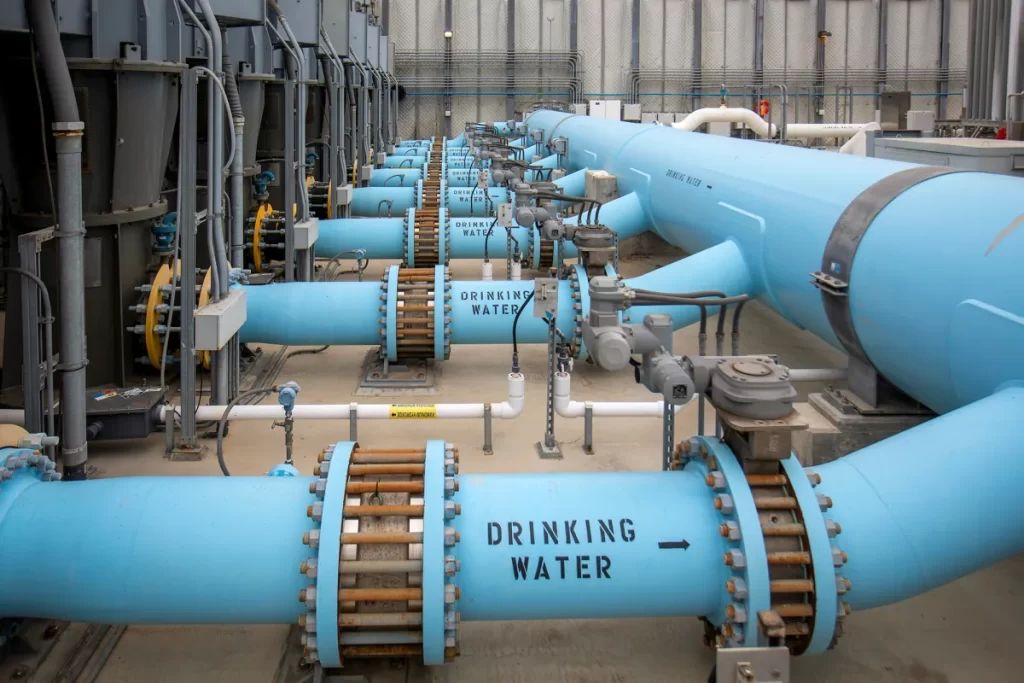STAFF REPORTER
NAMIBIA’s appetite for debt to finance national projects have come under scrutiny with economists and academics advising the executive to throw caution to the wind when signing loan agreements with international development partners.
They argue that strict debt control will avoid mortgaging the future with interests on repayments.
This comes after Minister of Finance, Ericah Shafudah, signed a N$1.5 billion loan agreement with the German government through the Kreditanstalt für Wiederaufbau (KfW) to fund clean water production.
The loan carries an interest rate of 10.09% and has a 20-year repayment period.
It also comes with a five-year grace period.
“This interest rate is 2.3% lower than the local interest rate of similar maturity, and provides sufficient grace period to allow the construction of these projects, before repayment,” she said.
Shafudah said Namibia is experiencing water shortages and needs a remedy.
“The government has thus declared water scarcity a national emergency and is giving high priority to the water sector. It has also been identified that water infrastructure has for a long time been plagued by underinvestment in the sector, and most of the water infrastructure has aged and is beyond its useful lifespan,” said Shafuda.
UNBEARABLE COST
Research, governance and strategic planning expert Dr. Rauna Shipena writes in the Namibia Business Review that the costs of the recently signed agreement between Namibia and Germany are too costly to handle in future.
“At 10.09% interest over 20 years, Namibia will repay approximately more than N$4.7 billion, over three times the principal. This isn’t abstract accounting. It’s real money, taken from taxes, water tariffs, and other public resources
.
“And it doesn’t stop there.Every single Namibian taxpayer will contribute to repaying this debt, including future graduates entering the workforce after the grace period lapses. They’ll walk into a job market that is not just slow-growing but already under pressure from mounting debt repayment obligations,” she said.
She said the loan will remain everyone’s burden and recommends government look at the domestic market for borrowing or simply tap into its coffers.
“Even the next government administration, whoever is elected, will be handed this loan as part of its inherited fiscal baggage. Before they get a chance to implement new projects or reduce poverty, they’ll need to find billions to repay what is essentially water that’s already been drunk and billed at premium rates.
“To Germany’s credit, this is not a case of coercion. No gun was pointed. This is diplomacy as chess a masterclass in strategy, persuasion, and positioning. German officials flew to Namibia, offered structured terms, and walked away with a 20-year contract. That’s smart. That’s powerful. And that’s the kind of thinking we, as a nation, must study.
“I am fascinated by how they did it. What frameworks do their economic diplomats use? What arguments are presented in boardrooms to win over entire governments into signing loans at rates the lender wouldn’t dare charge themselves at home? This isn’t a conspiracy. It’s competence. And Namibia must learn from it,” she said.
Dr. Shipena warned that Namibia’s public debt now sits near 70% of Gross Domestic Product(GDP) – far beyond what most developing economies can sustainably manage.
“Ordinary Namibians — whether employed or unemployed, will feel the burden. Not just through taxes, but through higher costs of water, electricity, and public services as the government seeks to raise revenue.Tax collection will intensify, not because the economy is booming, but because the state needs to keep up with repayments. This means more pressure on small businesses, civil servants, and even the informal sector,” she said.
GOOD REASONS TO BORROW
Economist Omu Kakujaha-Matundu told Namibia Business Review ther grants or loans are as good as what the recipient country uses it for.
“The golden rule of borrowing is that a country should spend every penny on infrastructure and not consumption. The returns on investment should be able to repay the loan. So your development is in your hands. No matter what the motives of the donor or lender are, grants or loans can assist in national development. So, such grants or loans can be seen as strategic instruments to fund shortfalls. But big BUT there should be something to show for. Our Hildreth should not repay thin air,” he said.
He said Namibia can contain the debt by growing the economy so as to outstrip the need for perennial borrowing.
CONSIDER BORROWING IN LOCAL CURRENCY
Another Economist Klaus Schade told Namibia Business Review that the government should practice what he described as responsible borrowing and finance projects that make an impact on ordinary lives.
“Perhaps the Government should consider negotiating foreign loans in local currency in order to avoid risk of currency fluctuations toward the lender that could result in higher interest rates. That way the repayment is predictable as compared to borrowing in foreign currency and shouldering foreign currency fluctuations,” he said.
He added that water borrowing to finance key infrastructure has its own advantages.
“What is important is how the debt is being used and return on the loan. Reliable water supply is a critical enabler for social and economic development.We have experienced that inadequate water supply limits production in the mining sector and also in agriculture or even in the manufacturing sector. Industries depend on water supply so improving water supply attracts other investment and ensures that industrial capacities are utilised,” Schade said.
He added that, “Of course it can be financed through various ways whether borrowing local or international markets. We know of the late Government revenue has not been good so this can be financed locally through long term bonds or treasury bills or on the national market.Government is borrowing already on the domestic market and additional borrowing could result or risk crowding private sector borrowing and pushing up interest rates so therefore considering foreign loans is a suitable alternative.”

COMMENTS